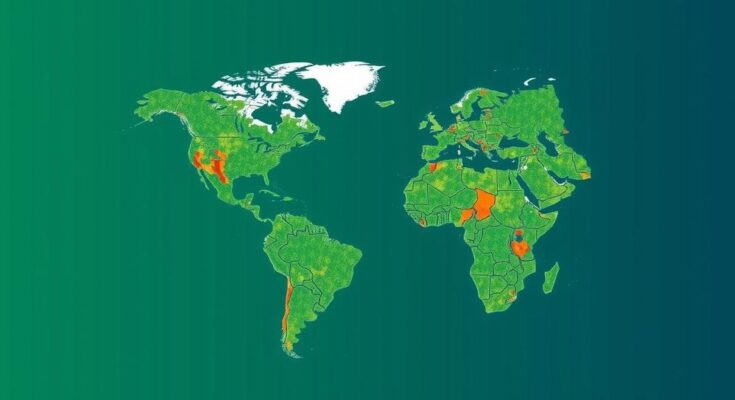At the COP29 summit in Baku, a $300 billion annual climate finance agreement was adopted, but it faced criticism for being inadequate and lacking accountability. Discussions revealed significant tensions between developed and developing nations. Experts urged for mechanisms to ensure commitments are met, emphasizing the need for equitable responsibility in addressing climate impacts.
At the COP29 summit held in Baku, Azerbaijan, countries adopted a significant yet contentious agreement to allocate $300 billion annually for climate finance aimed at assisting poorer nations in addressing climate change impacts. However, recipients of this funding have criticized the deal as insufficient, asserting that without a robust accountability mechanism, wealthy nations might not fulfill their promises. The agreement also includes targets for additional climate financing, where developed nations are expected to raise their contributions to at least $1.3 trillion annually by 2035 to support climate actions in developing countries.
During the negotiations, differing positions between developed and developing countries led to heightened tensions that nearly halted talks. Ultimately, a compromise saw wealthier nations pledging an extra $50 billion compared to initial proposals. Criticism from representatives of vulnerable nations was pointed: “Our islands are sinking. How can you expect us to go back to the women, men, and children of our countries with a poor deal?” – Cedric Schuster, Chair of the Alliance of Small Island States. This sentiment was echoed by Sierra Leone’s climate minister, Jiwoh Abdulai, who lamented the apparent lack of goodwill from affluent nations.
The absence of a mandatory accountability framework was highlighted by experts as a significant flaw that undermines the credibility of the commitments made by developed nations. Sun Shao, a senior researcher at the Chinese Academy of Meteorological Sciences, emphasized that this lack of enforcement mechanisms allows for selective compliance by wealthy countries. In light of these discussions, Zhao Yingmin, head of the Chinese delegation, reiterated the importance of mutual responsibility in addressing climate issues, advocating for adherence to the principle of common but differentiated responsibilities.
China, as a developing nation, remains committed to the Paris Agreement; however, authorities have expressed concerns regarding excessive demands placed upon it relative to its developmental stage. Liu Zhenmin, China’s special envoy for climate change, criticized certain developed nations for claiming to support climate action while simultaneously stifling the green industries of developing countries. This duplicity, according to various experts, suggests a broader geopolitical strategy aimed at undermining China’s position within the global climate discourse.
In summary, the COP29 summit concluded with a critical yet flawed agreement that highlights substantial discrepancies in the commitment levels between developed and developing nations. The calls for accountability and more robust financing mechanisms underscore the challenges facing the international community in achieving effective climate action. As discussions continue, the need for genuine partnership and equitable responsibility remains paramount.
The recent COP29 summit was pivotal in shaping future climate finance frameworks amidst growing concerns over the impacts of climate change on vulnerable nations. The $300 billion annual commitment by developed countries was intended to provide much-needed support to poorer regions; however, criticisms emerged regarding the adequacy of this commitment and the absence of enforceable accountability measures. The backdrop of these negotiations reflects longstanding tensions between developed and developing nations over climate responsibility, funding, and the urgent need for systemic change in addressing global warming.
The COP29 summit’s agreement on a $300 billion annual climate finance target underscores a crucial, albeit insufficient, step toward addressing climate change impacts on poorer nations. Criticism from multiple stakeholders highlights the need for a stringent accountability mechanism to ensure compliance from developed countries. As the global community confronts mounting environmental challenges, fostering genuine cooperation and fulfilling financial commitments to developing countries will be essential for future success in combatting climate change.
Original Source: www.globaltimes.cn




